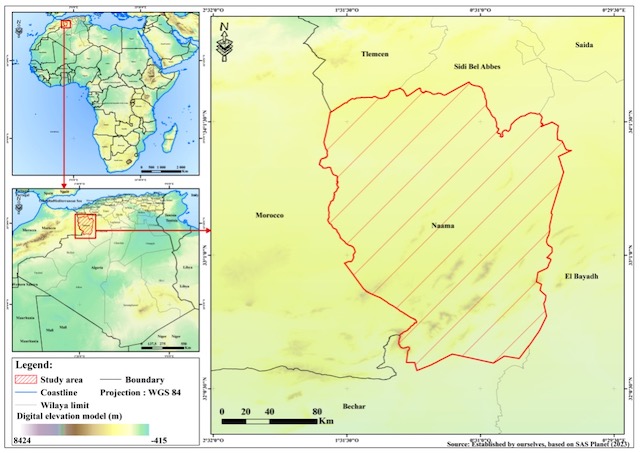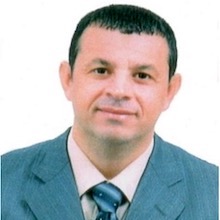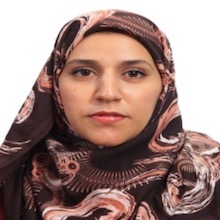About this CARP project
 Due to several factors, Algeria is experiencing the onset of climate change, which is particularly noticeable in the western highlands, especially in the Province of Naâma. In recent decades, various surveys have reported record-low annual rainfall due to insufficient and irregular precipitation. This, in turn, has directly led to the emergence of an arid bioclimatic stage in this region. As a result, the natural environment has been degrading over time, primarily because the plant cover is regularly under attack from immediate factors, including parasite infestations, forest fires, and human activities such as overgrazing. These factors contribute significantly to the deterioration of fragile ecosystems and their gradual desertification. The water sources have dried up due to groundwater levels decreasing by half over the past 70 years. Some other indirect effects include the siltation of dams, the silting up of productive land, and the push for rural exodus to the country's northern regions. This study aims to assess how climate change is impacting the natural environment of the Province of Naâma, using various climate-related measures and indicators. The expected research outcomes encompass effective strategies for adapting to and mitigating climate change that help reduce rural migration and prevent widespread land abandonment.
Due to several factors, Algeria is experiencing the onset of climate change, which is particularly noticeable in the western highlands, especially in the Province of Naâma. In recent decades, various surveys have reported record-low annual rainfall due to insufficient and irregular precipitation. This, in turn, has directly led to the emergence of an arid bioclimatic stage in this region. As a result, the natural environment has been degrading over time, primarily because the plant cover is regularly under attack from immediate factors, including parasite infestations, forest fires, and human activities such as overgrazing. These factors contribute significantly to the deterioration of fragile ecosystems and their gradual desertification. The water sources have dried up due to groundwater levels decreasing by half over the past 70 years. Some other indirect effects include the siltation of dams, the silting up of productive land, and the push for rural exodus to the country's northern regions. This study aims to assess how climate change is impacting the natural environment of the Province of Naâma, using various climate-related measures and indicators. The expected research outcomes encompass effective strategies for adapting to and mitigating climate change that help reduce rural migration and prevent widespread land abandonment.
Study site
Naâma Province (highlands of Algeria’s northwest inner part).
Main Research Questions
- How does climate change affect the Naâma region (northwest of Algeria), which is already at risk of desertification due to recurrent drought, from various perspectives?
- What is the best way to inventory the effects of climate change on people, soil, and water?
- How will decision-makers exploit the findings from the research to identify the most appropriate preventive measures for protecting regional natural resources?
The project aligns with disaster risk reduction and climate adaptation by addressing climate threats that are impacting the region's natural environment and socioeconomic balance. Their outcomes intend to strengthen the resilience of the Province, both in urban and rural areas, from the perspective of climate change adaptation. This research seeks to provide practical tools for decision-makers and local authorities to implement effective adaptation and mitigation strategies, aligning with the Sendai Framework for Disaster Risk Reduction (SFDRR) 2015-2030. It offers a clear vision of the current and future status of crucial natural environments for the residents of Naâma Province in terms of climate, environment, and sustainable development.

Mohamed Beneldjouzi
Associate Professor
University of Science and Technology Houari Boumediene, Algeria
Principal Investigator

Nabil Mega
Associate Professor
El Oued University

Amina Feriel Sabri
Assistant Professor
University of Science and Technology Houari Boumediene

Amel Azzi
Assistant Professor
University of Science and Technology Houari Boumediene

Ayouaz Maamar
PhD Student
University of Tamenrasset

Nesrine Hameidia
Ph.D. Student
University of Science and Technology Houari Boumediene

Abdenour Ambar

